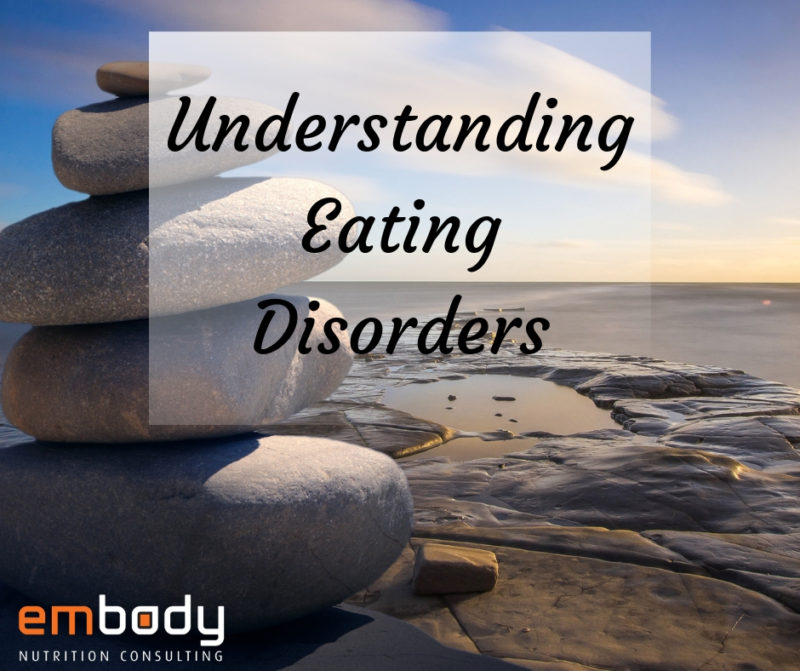What are they?
Eating Disorders are a serious mental illness that has sadly doubled for both men and women in the last 10 years. This illness has devastating impacts on the individuals physical, psychological and social wellbeing and on top of that is the leading cause of death for any mental illness.
There isn’t one thing that can cause an eating disorder but there are many risk factors that play a role into developing one such as your genetic makeup, personality traits, stress, sport, cultural and social idealisation. Today’s media outlets such as TV, magazines and social media have contributed to today’s unrealistic standard for how women and men ‘should’ look causing greater body image concerns. This can increase the risk to body dissatisfaction and lead to eating disorder behaviours.
Eating disorders can be clinically diagnosed through certain criteria by healthcare professionals, although in recent years negative relationships with food and body concerns are being recognised without a clinical diagnosis.
Eating Disorder Diagnosis:
Anorexia Nervosa is diagnosed as restriction of food, leading to a significant loss of body weight from having an intense fear of gaining weight or becoming ‘fat’. There can also be subtypes of Anorexia which are classified as restriction or binge/purging. This is when the person suffering from anorexia may either use exercise or vomiting to ‘get rid’ of food they have eaten.
Bulimia Nervosa is classified as regular episodes of binge eating which are then followed by certain behaviours to prevent weight gain such as, self-induced vomiting, the use of diuretics, laxatives or excessive exercise.
Binge Eating Disorder is when regular binge eating episodes occur that may include; eating faster than normal, eating until uncomfortably full, eating large amounts of food when not hungry, eating alone or in private and having depressed and guilty feelings following an episode.
Other Specified Feeding and Eating Disorders (OSFED) is used when an individual may show the symptoms and signs of an eating disorder but do not meet the full specified criteria for the disorders. This is highly common as around 30% of those treated for an eating disorder by a professional are diagnosed with OSFED. This disorder includes distressed eating habits, disordered body image and fear of gaining weight.
Treatment of Eating Disorders:
Recovery from an eating disorder is not easy and it is important to remember that it is possible.
Those first steps towards recovery for someone with an eating disorder can be extremely challenging and uncomfortable, making them feel stressed, anxious, angry, scared and upset. The process of recovery is long and is different for everyone. Certain treatments may work better for some than others, therefore individualised treatments around the person with an eating disorder is the best approach.
Treatment may include the following:
- Psychotherapy: involves seeing a psychologist or specialised counsellor who addresses thoughts, emotions, behaviours, thinking patterns and relationships.
- Family therapy: this approach is more commonly used when young children or adolescents are suffering from an eating disorder. This will involve the whole family to help better care and support the person with an eating disorder.
- Medication: when the person with an eating disorder has other mental health concerns such as anxiety or depression, medication may also be prescribed by their doctor to help in addition to other treatments.
- Doctor: having regular visits to the patients GP is important and vital to the treatment process.
- Dietitian: seeing a dietitian who is specialised in eating disorders is important to help with nutritional care. This can include helping develop healthy eating behaviours and care in a hospital setting also.
Eating disorders are a complex and devastating illness that have been estimated to affect up to 16% of the Australian population. Disordered eating patterns and dieting can be early warning signs, so it is better we prevent eating disorders by intervening early.
Bringing up the topic of eating disorders can be difficult and anxiety provoking, so if you are worried or concerned about a friend or family member it is important to approach the topic in a sensitive and non-judgemental way.
Eating disorder resources:
The Butterfly Foundation has more information and resources that can help better understand eating disorders and give support.
Reach Out have an Australia wide support list for eating disorders.



